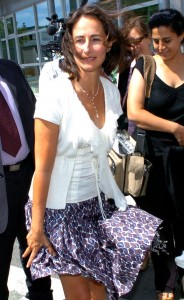
Christian Welzel and Ronald Ingelhart have a provocatively titled article in the newest edition of the Journal of Democracy called The Role of Ordinary People in Democratization. Breifly, they argue that an emphasis on human development plays a larger role in democratization when you construct “democratic” as more than simply having free and fair elections (electoral democracy). They find that that when you construct democracy as “effective,” which they define as: preserving human rights/civil liberties while being anti-corrupt in addition to free and fair elections, the role of “ordinary people” matters. Here’s a key quote from their article:
Thus, the HDI (human development index) explains fully 60 percent of the variation in effective democracy. In other words, the HDI explains almost twice as much of the variance in effective democracy as it does in electoral democracy.
The upshot of this finding is that we need to figure out how you move from encouraging formal democracy (open electoral processes) to helping build political cultures of engaged, active citizens that expect and demand an active role in decision-making.

